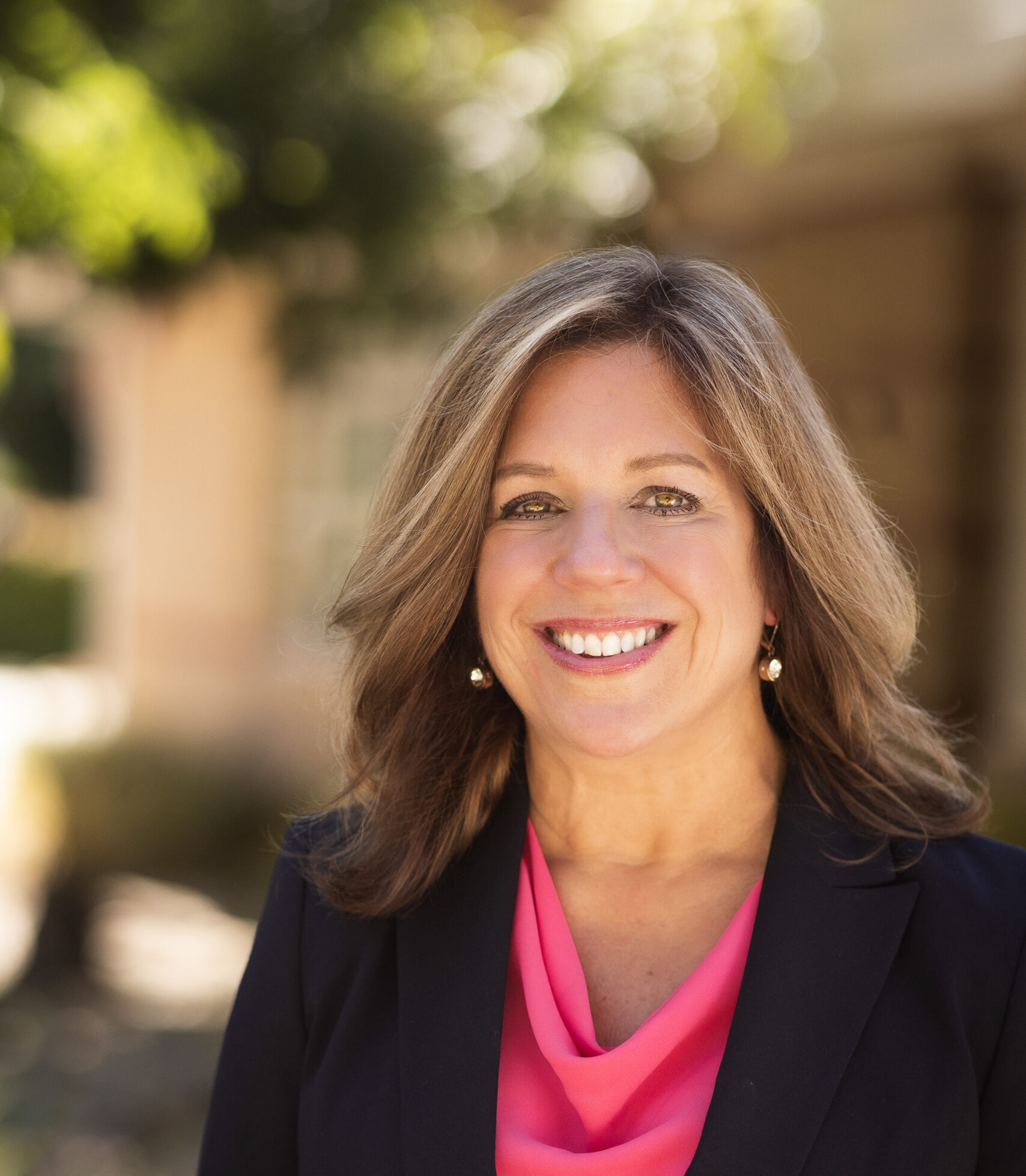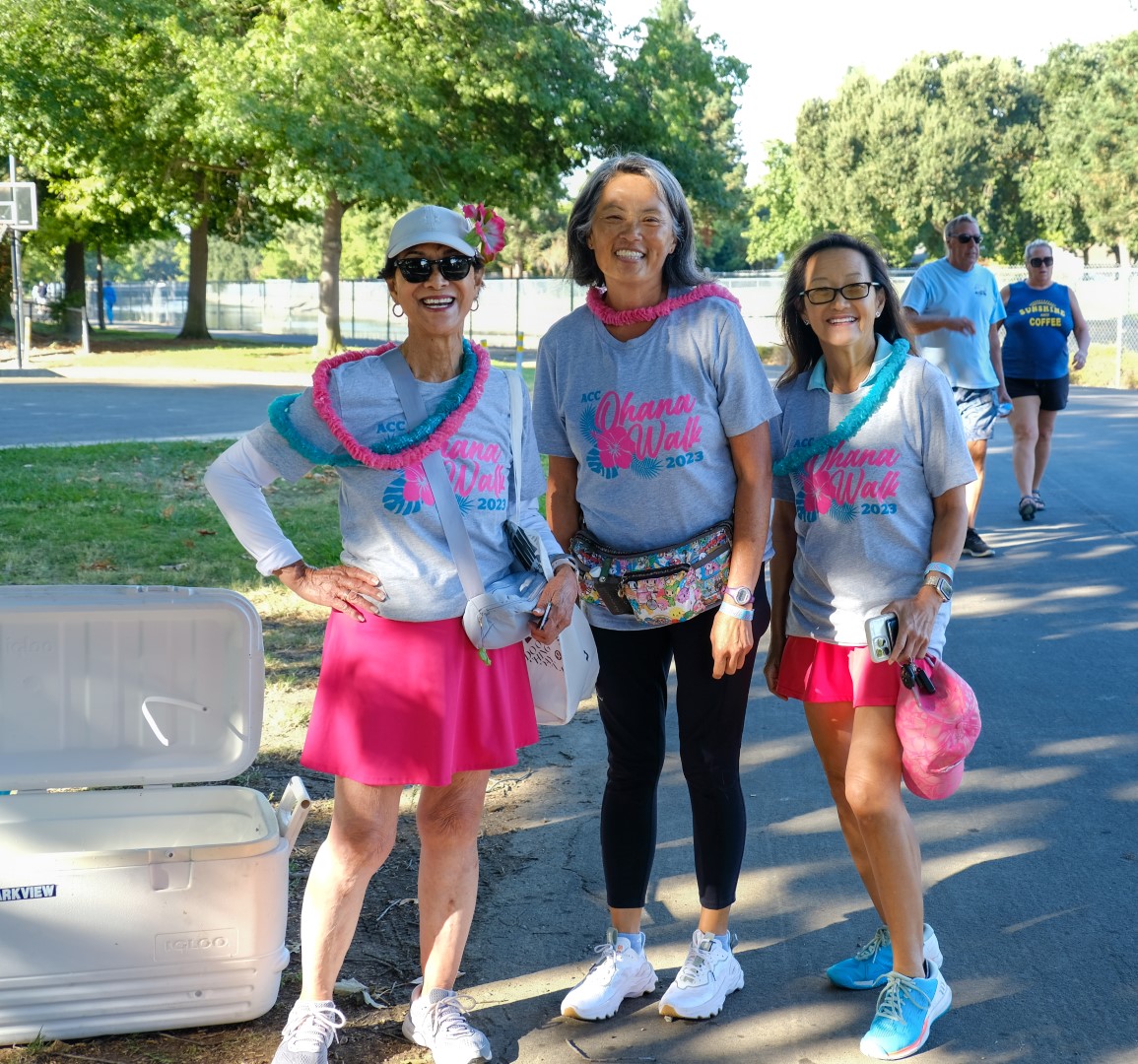We would like to thank the community for your support throughout 2023! We have accomplished a lot and could not have done it without each and every one of you! As we move into 2024, we will also be looking at new ways to continue bringing the community together with the support of our volunteers, committee members, and all those who continue to make ACC the very special organization that the community has enjoyed for the last fifty years!
ACC to Reinstate Class Fees in 2024
After three years of diverse programming at no cost to participants, ACC will be reinstating class charges starting on March 1, 2024. It’s not a decision we take lightly, because we know how important it is to have fun, meaningful social interactions accessible in our community.
Sean Hidalgo Named “Game Changer” by Asian American Liberation Network (AALN)
Sean Hidalgo is the Classes Manager for ACC Senior Services. He runs the studio that makes all of ACC’s livestreaming classes and workshops possible. Since the start of the pandemic, he’s produced thousands of online sessions, helping those isolated at home stay connected.
Health Care Needs Social Care
Health care is something talked about all the time, usually in the context of disease, illness, or injury. Social care refers to addressing people’s non-medical needs that have consequences on health. It may seem like a lower priority for many people because, if you are in pain, you’re going to see a doctor about it.
A Message from Jean Shiomoto
As I reflect on this past year as the Acting ACC President and CEO for ACC Senior Services and Meals on Wheels (MoW) by ACC, I want to thank all the managers and staff for their unwavering support.
Mah Jong at ACC, a Place to Belong
The ACC Mah Jong Club meetings Mondays, Wednesdays, and Fridays at ACC. The seven tables fill up quickly. The ladies and a few men settle down in groups of four. Once the “MJ” tiles are “washed,” the game is on! The clicking of tiles is mixed in with laughter and whispers about who makes the best dim sum pastry and the old neighborhood gossip that happened 50 years ago!
Connecting Hearts and Building Health
As someone whose career is deeply rooted in the well-being and healthcare of individuals, my journey into the world of senior care began at ACC Bingo, which meets every Friday. More than a year ago, I began as a player and then as an emcee and caller. It was an unexpected yet incredibly rewarding detour in my career as a dental practice consultant.
Little did I know that this volunteer activity would be fun and interesting for seniors, their caregivers, and the more than 20 volunteers who take turns running the sessions. It opened a doorway to something much more profound – a path filled with heartwarming encounters, remarkable stories, and a unique perspective on social care and its impact on the health and well-being of seniors.
Adventures Beyond Bingo
Earlier this year, ACC asked me to help organize and lead field trips as part of its Lifelong Learning and Wellness program. These have been nothing short of many grand adventures. Our field trips have become a beacon of joy for the attendees, offering them a chance to explore, connect, and rediscover the vibrant spirit of life. I’ve had the pleasure of working with Jeri Shikuma, Dani Lee, Ted Fong, and Dannis Voong on planning these trips.
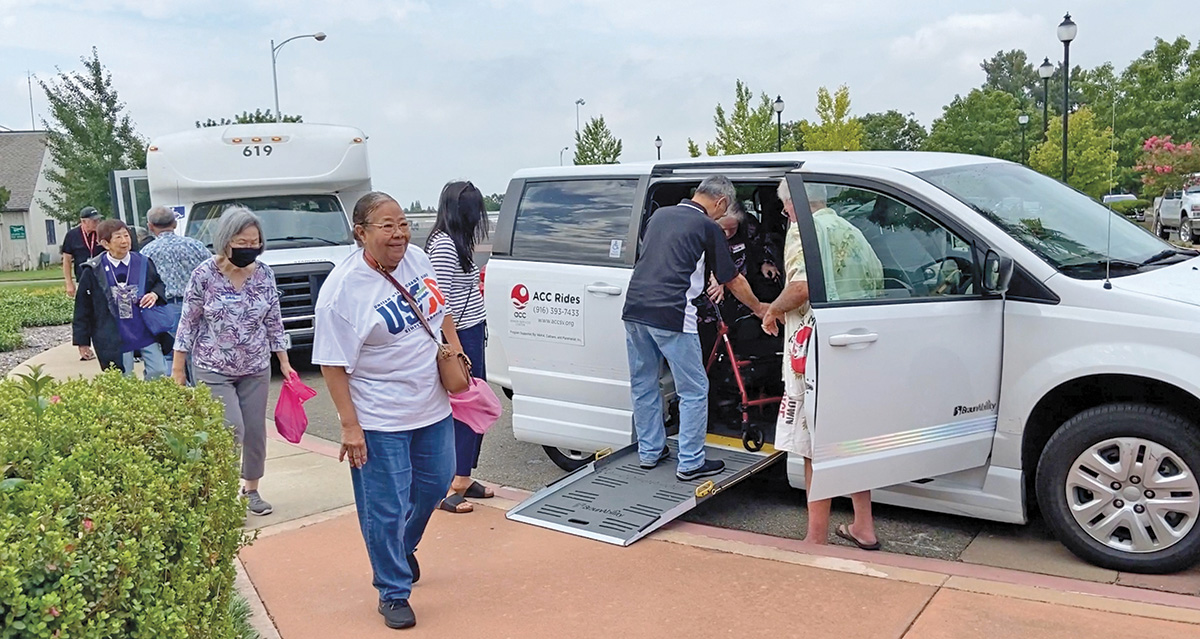
One field trip that stands out is the trip to the city of Locke to pick pears. Our friend and tour guide, Alfred Yee, was a delight to watch, as he interacted with our 30 pear picking participants. Clarence Chu, the owner of the pear farm, generously allowed us to pick as many pears as we wanted. The orchard was beautiful and had not been picked yet. Every single tree was chock full of pears!
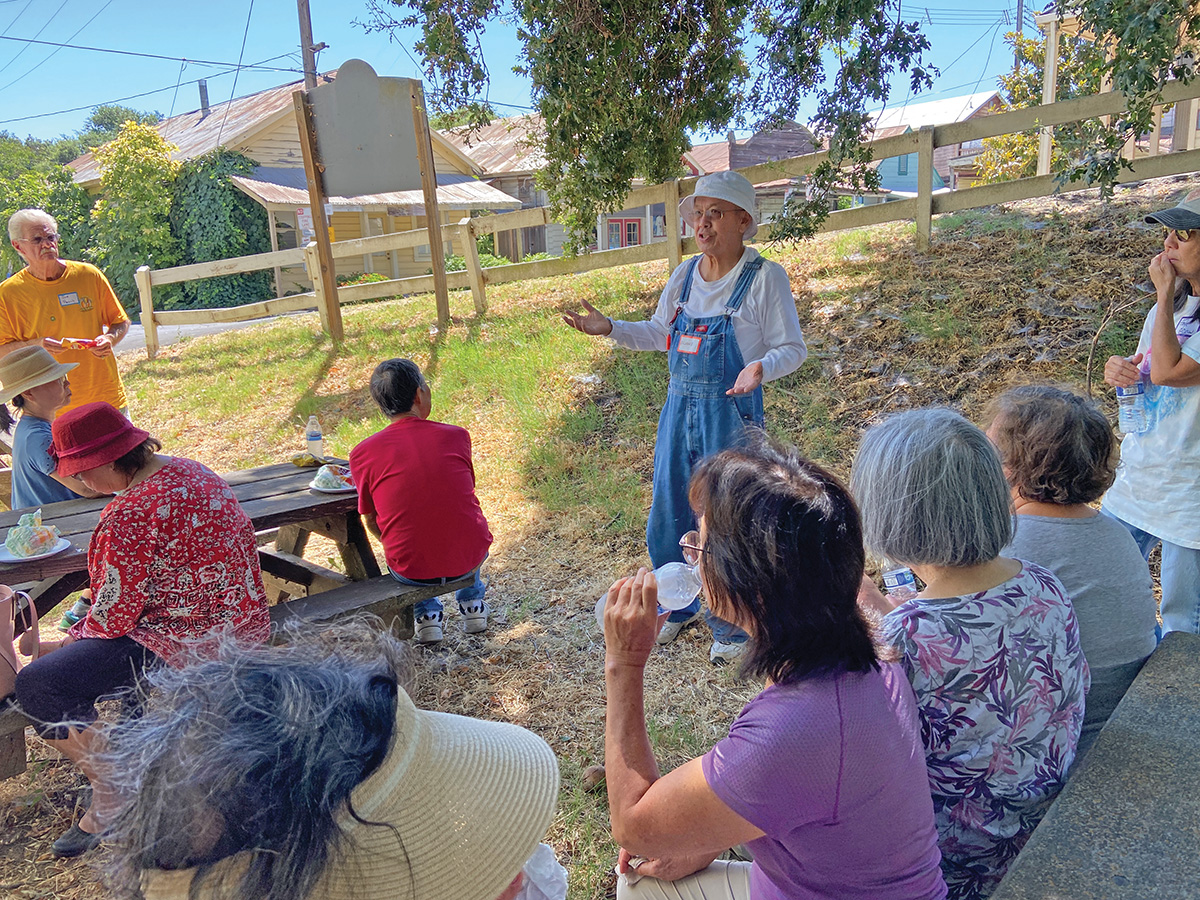
After pear picking, Alfred led us to the front of the Locke Museum and delivered a talk on the history of this Delta town. His childlike curiosity and unbridled enthusiasm were a vivid reminder that age is but a number and the thirst for knowledge knows no bounds. We enjoyed a delightful day, and our minds were stimulated with every pick and conversation.
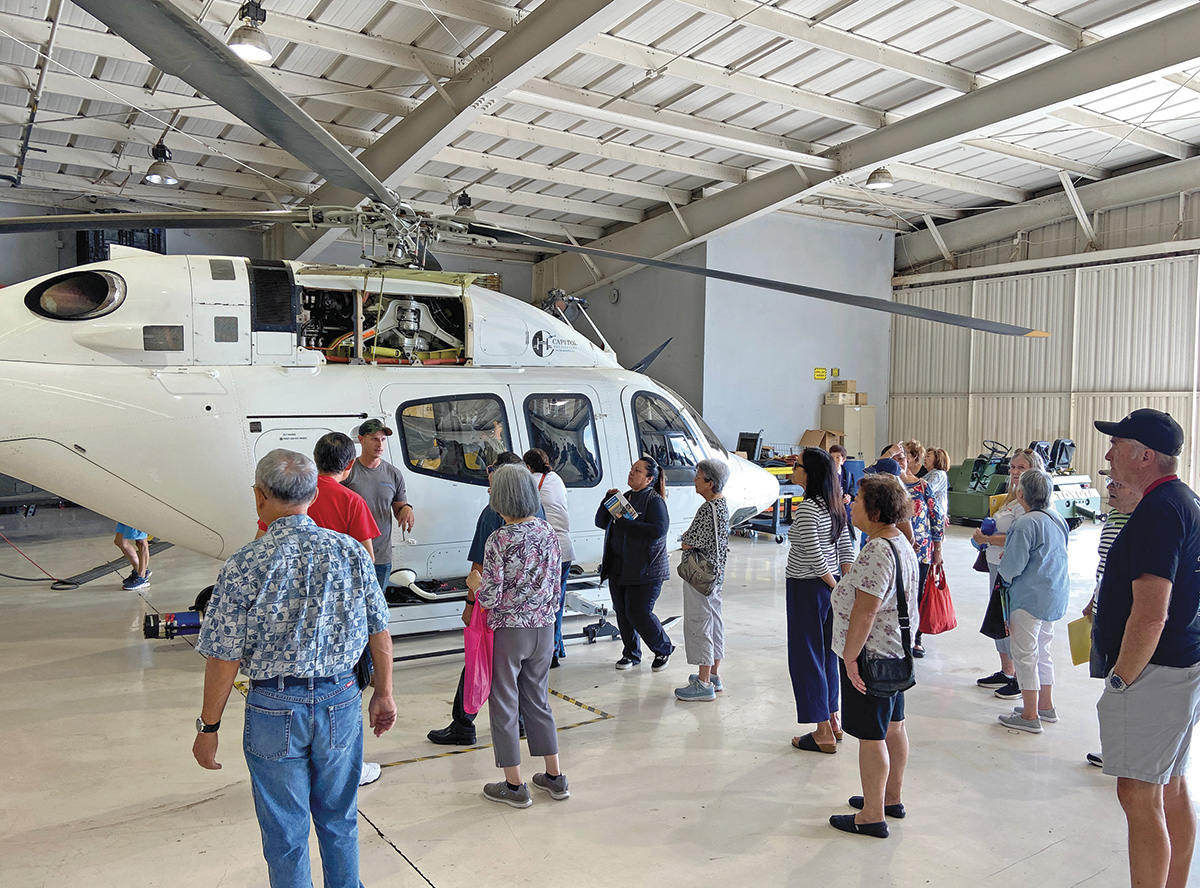
Another field trip was to the Sacramento Executive Airport, where attendees were treated to a behind-the-scenes look at Sacramento’s aviation history. Airport Manager Larry Fleshman and Ann LeBlanc, our knowledgeable guides, made the experience truly unforgettable. We also toured the hangar of Capitol Helicopters and visited a company that installs state-of-the-art instruments in airplanes. There were airplanes everywhere. Then we ate lunch at Aviator’s Restaurant!
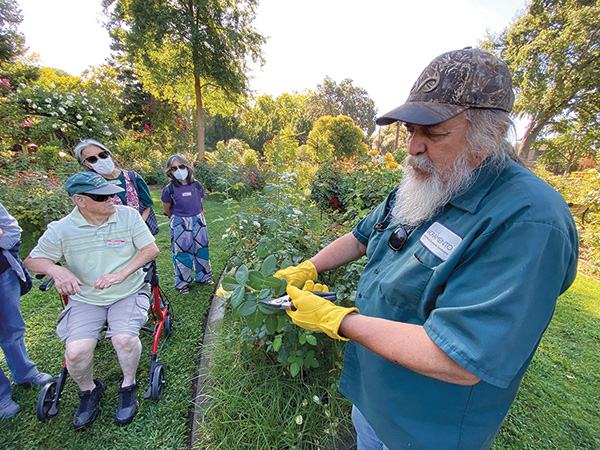
In September, a group of 22 took ACC Rides to visit the picturesque McKinley Rose Garden Park. As we strolled through the garden, I couldn’t help but notice the gleam in everyone’s eyes, the smiles that grew wider with every passing bloom, and the laughter that echoed through the fragrant air. It was a testament to the simple yet profound power of nature to uplift the soul. Then we enjoyed a picnic lunch.
Addressing the Ripple Effects of Isolation on Health
I’ve come to learn that connecting social care with health care is big at ACC Senior Services. Loneliness, especially during the pandemic, is a silent predator that can lead to a cascade of health issues. But by providing seniors with opportunities to engage, socialize, and stay mentally and physically active, we can contribute to a significant reduction in preventable health issues, hospitalizations, and emergency room visits. Ultimately, this leads to healthier, happier, and more resilient seniors who can enjoy a higher quality of life.
My participation in ACC bingo and field trips is a vivid reminder that health care isn’t just about treating diseases, it’s also about nourishing the spirit.
Ohana Walk Embodied The Spirit of Aloha!
On the brisk morning of Saturday, September 16th, 2023, over 700 walkers gathered in the parking lot of ACC Senior Services – ready to take off on their choice of a 1 mile- 2 mile- 3 mile route around the Pocket Canal Parkway.
Glen Shimazu, 102 – Celebrating Our Centenarians
Glen Shimazu grew up on a Delta farm. At age 102, he still loves tending to the vegetable gardens and fruit trees surrounding his home in Sacramento.
Born March 1921 in Sacramento to Japanese immigrant parents, he had two brothers and one sister. An older sister remained in Japan when his parents relocated to California. Glen’s father was the foreman of a pear orchard in Courtland. “It was hard work, picking and packing the fruit by hand. I learned to drive tractors when I was very young,” recalls Glen. Like other Japanese children in the Delta, he attended Bates Oriental School and Holland Japanese School.
Glen was a senior at Courtland High School when his family left for the Gila River internment camp in Arizona. In 1943, everyone in camp was asked to complete a loyalty questionnaire. Glen joined others in responding “no” to certain questions. By doing so, he was identified as being disloyal, aka a “No-No Boy.” His entire family was subsequently transferred to Tule Lake internment camp.
In November 1945, Glen and his father were released from Tule Lake. They returned to Sacramento and stayed in a hostel at Parkview Presbyterian Church. Around 1946, they had saved enough money to rent a house in Hood at a pear orchard. The rest of the family was able to leave Tule Lake internment camp and return to the house in Hood.
The family pooled their resources to purchase seven acres of land in South Sacramento for the purpose of farming. They harvested tomatoes, eggplant, daikon, and cucumbers and sold the crops to local stores. When the family stopped farming, they built homes on the land. Glen still lives in the home he built in 1960.
In the early 1950s, Glen figured he’d better settle down. He was working at McClellan Air Force Base. A mutual friend introduced him to Mary Seno. Raised in Florin, she was working at the Sacramento Army Depot. They married in 1955 and had three children, Yvonne, Dwayne, and Alene. They had 57 years together before Mary passed in 2012.
The couple found time to travel around the world, collecting rocks from every city they visited. Glen proudly showed me their unique rock collection; each rock is engraved with the site and date the couple were there.
What’s his secret to living so long? Glen says maybe it’s because he’s nice to everyone he meets. And he’s done a lot of volunteer work. He was one of the original volunteers with the Meals on Wheels program when ACC took over operations. He used to take a bus to play the slot machines in Reno and Tahoe, but these days, family members drive him to Red Hawk and Sky River casinos. Frequent visits from his children and five grandchildren keep him going.
Yvonne says her dad is a farmer at heart, spending long hours tending his garden and fruit trees. I can vouch for his green thumb – the Chinese long beans he gave me were delicious.

